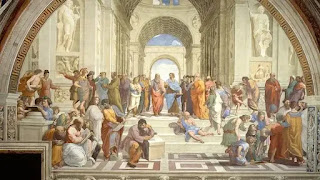How did the Renaissance influence English Literature?
The term ‘Renaissance’ which seems to have been first used by the French historian Jules Michelet in his Historie de France, published in 1885, has been described as the birth of the modern world out of the ashes of the Dark Ages; as the discovery of the world and the discovery of man; as the era of untrammeled individualism in life, thought, religion and art. It was a product of medieval society as fully as it was a reaction against it. One is able to identify, during the span of the Renaissance, a number of events and discoveries which in the course of time altered radically the views, production, and manner of the life of the intellectual classes. Generally, we may agree that the period of the Renaissance was notable for rapid expansion in commerce, new scientific discovery, intense political nationalism, and religious controversy. And perhaps the most salient characteristic of its intellectual life was a quality of uncertainty-the breaking down of ancient convictions, the groping for old against the new.
So far as the English Renaissance literature is concerned, it is divided into four periods: 1. The Period of Preparation (1500-1579)-it was the youth of the Renaissance, 2. The Elizabethan Period (1579-1602)-it was the manhood of Renaissance, 3. The Jacobean Period (1603-1625)-it was the middle age of the English Renaissance, 4. The Caroline Period (1625- 1650)-it was the old age of the Renaissance. The efflorescence of the Renaissance spirit appeared in Elizabethan literature which was marked by the fullness of national life, a passion for knowledge, a spirit of daring adventures, and an ambition to achieve great things. Gradually the spell of the Renaissance disappeared and people found their hopes dashed to the ground.
The Renaissance raised man’s hopes to the most magnificent potentialities within him, only to dash them again in the blackest pessimism as soon as he realized his individual limitations and then life became ‘a tale told by an idiot, full of sound and fury, signifying nothing’. Shakespeare chimes the note of disillusionment, the anarchy of the individual mind of man broken loose from the moorings of a religious or social system of the day:
The usurer hangs the cozener,
Through battr’d clothes small vices do appear,
Robes and furr’d gowns hide all. Plate sin with gold,
And the strong lance of justice hurtles breaks:
Arm it in rags, a pigmy’s straw doth pierce it.
The most significant impact of the Renaissance on English literature was seen in the change of perception of human beings. The man was placed in the center of the universe and writers tried to delve deep into his deeper world. In the words of Williams, ‘Now he looked inward into his own soul, seeking the meaning of experience in terms of his own free individuality.’ The great uprise of secular writings embodied in the poems and sonnets of the Earl of Surrey, Thomas Wyatt and Sidney, Sir Thomas More’s Utopia, John Heywood’s Interludes as well as the unique writings of Thomas Sackville concern with man’s emotions and experiences:
‘So strangely, alas, thy works in me prevail,
That in my woes for thee thou art my joy,
And in my joys for thee my only annoy.’
-Sidney’s Astrophel and Stella
Virgil, Plato, Seneca, Terence, Ovid, Petrarch, and other great classical masters taught English masters to find the greatest joys and meaning in the deeds and destinies of man. Right from Surrey and Wyatt to Marlowe and Jonson man occupied the center stage in all his mystifying nature offering infinite possibilities of interpretation and portrayals.
O child, Honour’s Muse, sing in my voice!
Riches and Conquest and renoun l sing.
– George Chapman
Renaissance opened out a great mythical world to English writers which not only enriched their literary repertoire but added a new angle to the comprehension and interpretation of like problems. The comedies of Terence, Platus were staged in the grammar schools, as for example, before 1541 Nicholas Udall staged a comedy called Ralph Roister Doister modeled on Plautus. Another early comedy Garmine Gurton’s Needle’s form was borrowed from the Latin model. As in drama, so in the prose works, the continental influences are prominently active, Virtually the only shaping spirit, especially those coming from Latin, French, Italian and Spanish masters. Machiavelli’s Il Principles, Castigliones’ The Courtier, Plato’s Republic, and several works were studied and translated by English writers.
Close contact with continental Sources also affected to an appreciable degree the English language and enriched and enlarged it in a number of ways. There occurred not only an influx of ideas and several literary elements, but linguistic elements too. ‘Latin had been the common language of all educated Europeans’, but English in Renaissance…was more plastic.’ (A.C. Baugh and Thomas Cable) It was notable that while influence from the classical sources infused a new spirit in literature, the same Renaissance exuberance had begun to fire the imagination of English people with a new patriotism and love for their language: ‘I Love Rome, but London better; I favor Italy, but England more; I honor the Latin, but I worship the English’-these words of Richard Mulcasters echo the general feeling. The ‘Renaissance’, in sum, then, truly influenced the English literature to a considerable extent and then-therefore it is certainly not an exaggeration when the Editors of Microsoft Encarta Encyclopedia 2006 dubs it as the ‘golden age of English literature’.
#Renaissance_influence_English_Literature

